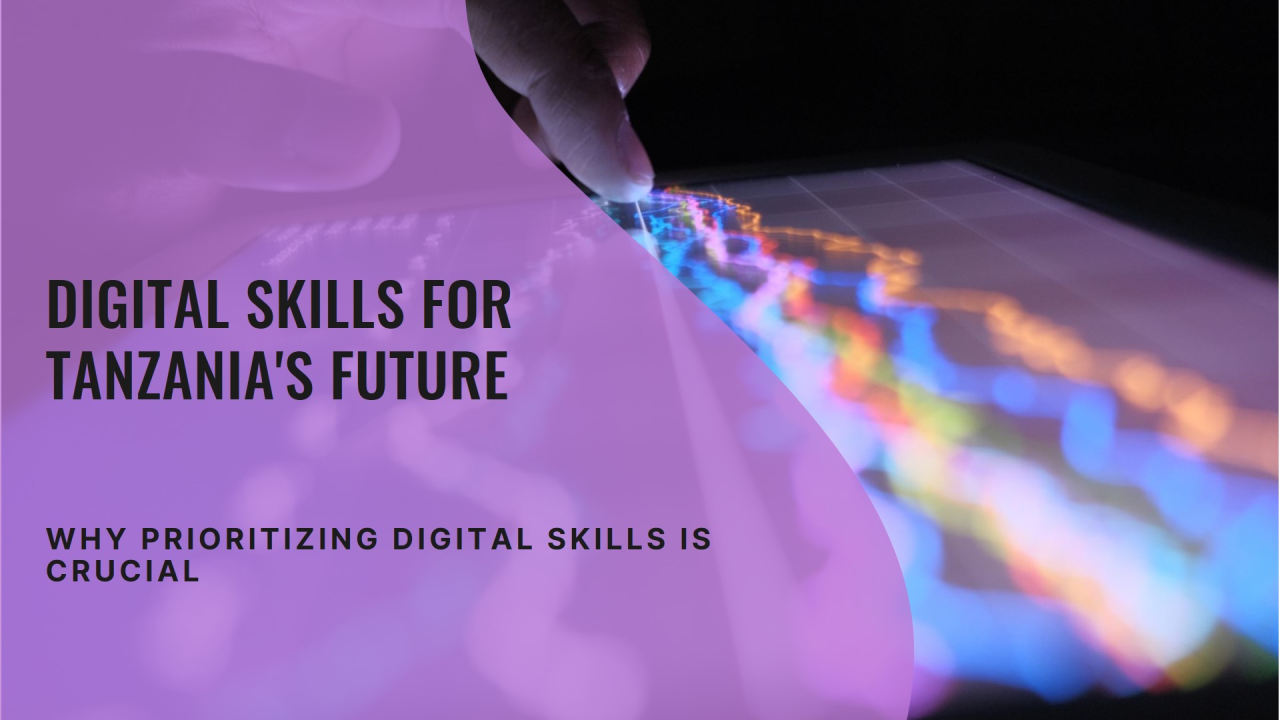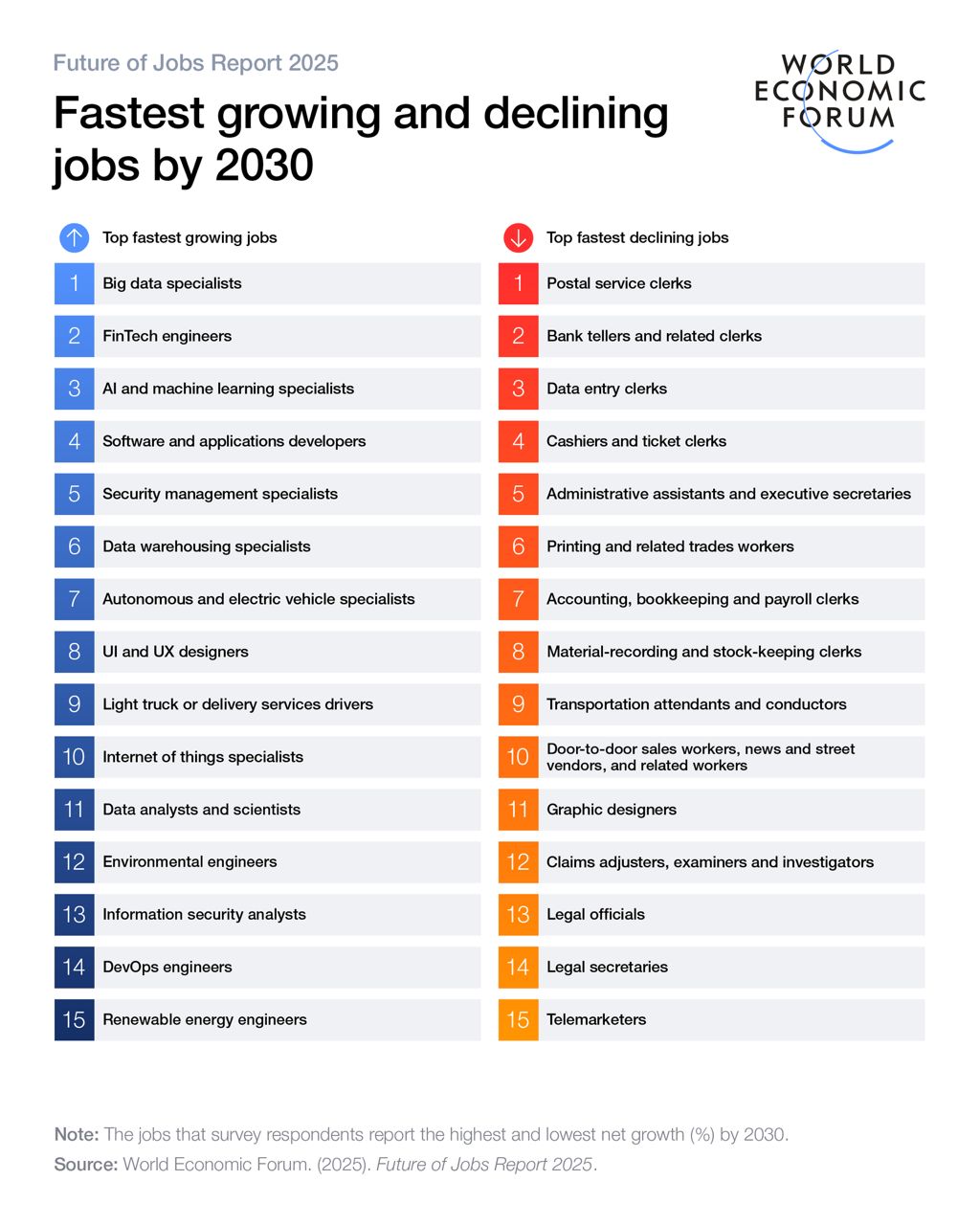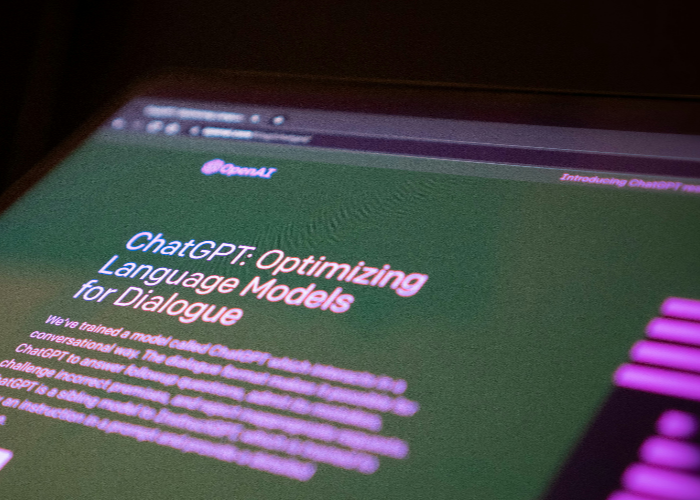
Today, I've had a chance to look at the World Economic Forum's Future of Jobs Report 2025, it reveals a rapidly changing global job market, where digital skills are not just an advantage, they are a necessity. One thing that I quickly noticed is the report shows that 11 out of 16 emerging jobs heavily rely on digital skills. By 2030, many of the fastest-growing professions, like AI specialists, Big Data analysts, and software developers, will heavily rely on advanced technological expertise. For Tanzania, this is both a challenge and an opportunity.

The Rise of Digital Jobs
The report highlights that most emerging roles, whether in AI, machine learning, data analysis, or renewable energy engineering, require workers to possess strong digital skills. Even fields like UI/UX design or FinTech engineering combine creativity with deep technological knowledge. These trends signal a future where Tanzania's workforce must become proficient in digital tools to compete globally.
Yet, the majority of educational institutions in Tanzania still emphasize traditional academic approaches, leaving graduates ill-equipped to meet these demands. If this gap persists, securing employment will not only remain challenging but will worsen. In a world where automation is replacing repetitive tasks, such as data entry or clerical work, the demand for workers with advanced digital skills is skyrocketing.
Why Securing Jobs Will Be Harder
Currently, many Tanzanian graduates struggle to find employment because their skills do not match industry demands. The report reinforces that this mismatch will intensify unless immediate action is taken. Jobs like postal service clerks, bank tellers, and data entry operators, once considered stable, are rapidly declining as automation takes over. Without proactive measures, Tanzania risks having a workforce unprepared for the technology-driven economy.
Emerging fields demand expertise in coding, cybersecurity, data management, and even AI-based decision-making tools. Without embedding these into the education system, Tanzania’s youth will face stiffer competition not only locally but from a global workforce increasingly operating remotely and crossing borders.
Preparing for the Future of Work
To address this challenge, Tanzania’s education system must shift its priorities:
1. Introduce Digital Literacy Early: Primary and secondary school curricula should include foundational digital skills such as coding, data handling, and the use of digital tools.
2. Revamp University Programs: Higher education institutions must offer specialized programs in AI, data science, and FinTech engineering. Collaborations with tech companies like Fiqra Technologies, can bridge academic knowledge with industry needs.
3. Upskilling Programs: Workers in traditional roles must be retrained for emerging fields. For example, data entry clerks could be trained to become data analysts, while bank clerks could transition into FinTech roles.
4. Focus on Practical Training: Tanzania must emphasize vocational and skills-based learning. Platforms like Fiqra Academy can play a key role by offering online courses that directly align with the fastest-growing jobs.
Leveraging Tanzania’s Strengths
While the challenges are significant, Tanzania has several advantages. The country's youthful population can adapt quickly if provided with the right tools and resources. Initiatives like Fiqra Academy’s focus on digital education can pave the way for widespread upskilling and reskilling. Moreover, as technology becomes cheaper and more accessible, rural areas can also be included in this digital revolution.
The rise of roles like renewable energy engineers and environmental specialists also aligns with Tanzania’s push for sustainable development. This creates an opportunity to prepare a workforce ready to lead in areas like green technologies and sustainable practices.
The Cost of Inaction
The report makes one thing clear: failing to adapt to these trends will have severe consequences. If Tanzanian graduates remain unprepared for the demands of the future job market, unemployment will rise, and the country will miss out on opportunities to compete in the global economy.
But this doesn’t have to be the case. By investing in digital education and innovation now, Tanzania can secure its place in the future of work. It is not just about keeping up with global trends, it’s about empowering young people to build the nation’s future.
A Call to Action
The world is changing fast, and the job market waits for no one. For Tanzania to thrive, we must act now to prioritize digital skills in our education system. Securing jobs is already challenging for many, but without preparation, it will become even harder. Let’s ensure that the next generation of Tanzanians doesn’t just adapt to the future, they shape it.
For a comprehensive overview of the evolving job market, I recommend reviewing the World Economic Forum's Future of Jobs Report 2025. Click here to view.
Comments (0)
Categories
Recent posts


Elevate Your Online Experience: 6 ...
30 Jan 2024
Unleashing High-Income Potential: 10 ...
30 Jan 2024
Reflecting on Our Unforgettable ...
15 Jul 2024.jpg)



